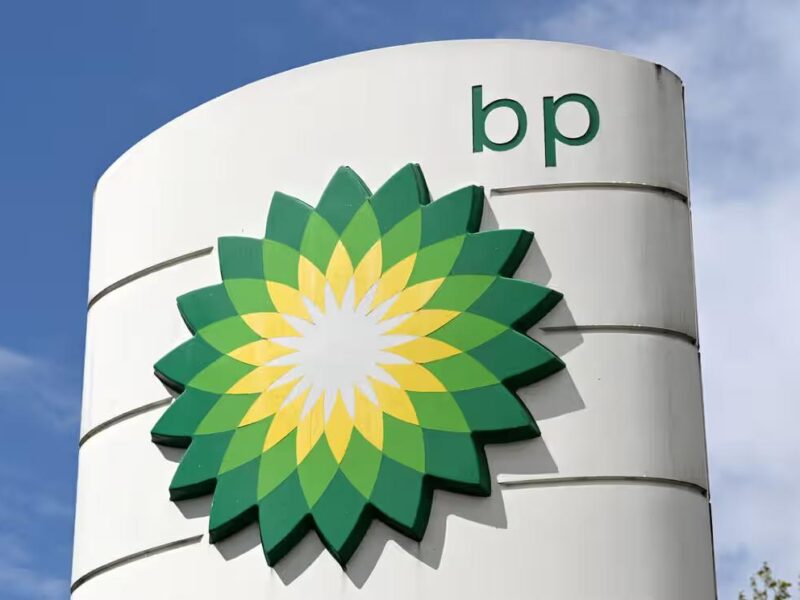Future of oil company in danger due to US mergers following abrupt departure of CEO Bernard Looney
The interim CEO of BP has played down rumors that the oil giant would be the subject of a takeover, following the announcement of lower-than-expected third-quarter earnings of $3.3 billion (£2.7 billion).
A wave of massive acquisitions in the US oil business and the unexpected departure of BP’s CEO, Bernard Looney, in early September have raised concerns about the company’s future.
The company’s first financial figures since the board temporarily promoted Murray Auchincloss, BP’s chief financial officer, to the position are below expectations. The company’s profits fell short of expectations, from $8.2 billion in the same months previous year.
Auchincloss told the Guardian that BP was “in a pretty good position” and that its multiples to earnings were comparable to those of European oil firms Shell and Total, thus he was not worried about the acquisition rumors. According to him, BP has also begun to reduce the valuation difference between itself and its rivals in the US.Since the industry recovered from the Covid-19 outbreak, BP’s share price has lagged behind its larger competitors. The company also announced plans to reduce its production of fossil fuels by the end of the decade and increase investment on low-carbon energy, which sparked rumors that it would be acquired. Following its less than anticipated financial reports on Tuesday, its shares fell more than 4%, making it the biggest loser.
Auchincloss stated that BP’s strategy, which it revised earlier this year to soften its green ambitions, was “very supported” by investors at the company’s strategy investor day in the US in early October. As part of its green initiative, BP has made significant investments in the offshore wind sector; but, due to higher than anticipated costs, the company was forced to register a $540 million writedown on two projects off the coast of New York.
Regarding whether he would nominate himself to assume the chief executive position permanently, the acting manager chose not to respond. It carries a lot of responsibility. However, I’m really just concentrating on my day job,” he admitted.
Helge Lund, the chair of BP, has begun the search for a new CEO to succeed Looney, who resigned from the position after three years in charge due to misrepresenting to the board several prior personal connections with BP employees. The company may appoint its first external chief executive in decades as a result of the search.
Auchincloss reported that the company’s “strong underlying operational performance” was the reason for the “solid quarter.” “We remain committed to executing our strategy, expect to grow earnings through this decade, and on track to deliver strong returns for our shareholders,” he continued, referencing the information he had presented at his investor update in Denver.
Although BP attributed the previous quarter’s earnings decline on lower energy market prices, the company’s profits fell well short of analysts’ forecasts, which were projected to be slightly over $4 billion.
The benchmark oil price fell from $100.84 per barrel during the same period last year as a result of the war in Ukraine upending the world’s energy markets to $86.75 per barrel on average in the third quarter. Tuesday saw Brent crude trading at a little over $88 a barrel.
Following Russia’s shutdown of pipeline exports to the continent, the European gas markets saw record highs. In the third quarter of last year, the average price of gas in the UK skyrocketed to 281p per therm, but in the same period this year, it dropped to 82p per therm.
Green organizations have been putting more and more pressure on BP since the firm softened its climate commitments earlier this year and revealed that its yearly profits for 2022 will more than treble to $28 billion.
According to an analysis conducted by the left-leaning thinktank Institute for Public Policy Research, in the last two years, BP invested nine times as much in fossil fuels as it did in renewables.
IPPR researcher Joseph Evans stated: “BP is putting profit ahead of people and the environment.” Energy corporations should be rapidly responding to climate change by shifting their investments away from fossil fuels, but BP has increased its focus on the oil and gas industry in order to boost earnings and enrich shareholders with buybacks totaling more than $1 billion.
“With massive storms pummeling both sides of the Atlantic, BP continues to post billion-dollar profits while ordinary people pick up the tab for climate change,” stated Charlie Kronick, senior climate adviser at Greenpeace UK.











